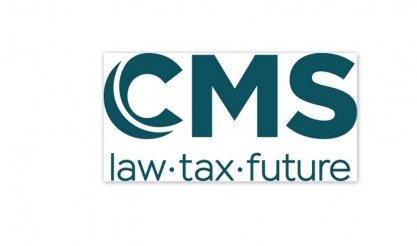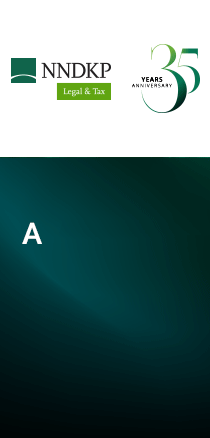
CMS | WEEE management changes in Romania expected to significantly impact the industry
10 Octombrie 2024 CMS Romania
For more information on Romania's WEEE sector and environmental compliance in Romania, contact your CMS client partner or these local CMS experts: Horia Draghici and Laura Grigore.

|
Romania’s legal framework for management of waste from electrical and electronic equipment (WEEE) dates back to 2015 when the nation transposed Directive 2012/19/EU. The national law created from this directive mandated however a mixed regime of obligations and sanctions for producers and their collective schemes implementing Extended Producer Responsibility (EPR) insofar national collection targets were not met. In short, Romania’s law created a framework where producers and EPR schemes shouldered the responsibility when collection failed to meet the targets set at the national level. Even if the latest relevant Eurostat data (from at the level of year 2020) revealed Romania to have one of the lowest rates of collection performance in the EU, the Romanian legislator still deemed appropriate (even if not quite feasible in reality) to impose to producers and their EPR schemes in Romania to shoulder the responsibility for this national target.
Producers and EPR schemes that do not meet the annual national WEEE collection target face penalties in the form of financial contributions (having fiscal regime) to Romania’s Environmental Fund Administration.
The current contribution is RON 2 per kg (i.e. approximately EUR 0.4 per kg) with the exception of lighting equipment, which calls for a contribution of RON 4/kg (EUR 0.8/kg), based on a computation between the annual target of WEEE and the volume actually managed.
Reaching the national collection target (i.e. 65% of the average of the last three years of EEE volumes placed on the national market) has become more and more challenging, given waste scarcity and EEE management grey areas (i.e.; unauthorised WEEE management practices).
While EEE producers and their EPR schemes face a tougher new regime, the new rules and increased responsibilities reflect the problematic matter of who will ultimately pay “the bill” to the Environmental Fund Administration for not meeting the annual target. Under the amended framework and legislation, the Romanian EEE sector will face the following regulations:
1. The Romanian state has introduced a staged minimum collection rate to be met by producers and EPR schemes for each WEEE category as of 1 January 2025. Interestingly, a minimum collection rate would appear to be more difficult to reach since it is applicable per each WEEE category (until now the target was computed overall without division into categories).
Starting 1 January 2025 at least 15% (on 1 January 2026, it will be at least 20%, on 1 January 2027 at least 30%, on 1 January 2028 at least 40%, and on 1 January 2029 at least 50%) except for photovoltaic panels. The staged minimum collection rate per category does not prejudice the annual collection rate for all WEEE.
2. All EPR schemes currently licensed for WEEE management will need to be relicensed to ensure compliance as of 1 January 2025. The criteria set for relicensing under the new legal framework are complex and involve stricter conditions.
The compliance with these new rules starting next year may entail significant changes in the organisation and the functioning of schemes, shareholding structures, and financial considerations since all schemes will need to ensure and maintain coverage in the form of a financial guarantee of RON 2 million (EUR 400,000) for the period of the licence. This guarantee is meant to secure funds for paying contributions to the Environmental Fund Administration when the national target is not met. Another significant change refers to the obligation that schemes must ensure and maintain financial provisions for the 100% management of EEE financed by producers for which they take responsibility, regardless of when EEE waste is produced. Moreover, for the first time, a minimum market share of at least 5% applicable for each licensed EPR scheme has been introduced. The market share must be certified by the Environmental Fund Administration. The minimum market share will need to be maintained each year pending licence validity and refers to EEE quantities placed on the market by founding members, members, shareholders, and associates from the previous year, for at least one category of authorised EEE. While the specific order regulating the details for the relicensing of schemes beginning 1 January 2025 is still in the making, two questions arise:
→ Will current schemes successfully navigate relicensing?
→ What steps should producers take now to manage potential future instability and financial exposure?
Both questions will be addressed in a Law-Now article when legislation on relicensing is published.
3. Producer responsibility is aimed to be increased to cover for unpaid contributions owed by the EPR scheme to the Environmental Fund Administration.
Previously, if an EPR scheme did not meet the annual collection target on behalf of its producers, contributions were owed and paid to the Environmental Fund Administration by the respective scheme. Now, producers may become liable for the uncovered contributions owed by the scheme for not meeting the annual target, proportionally with producers’ market share within the penalised organisation. The actual wording of this provision appears however rather cryptic as it does not specify, amongst others, how this obligation would apply considering the fiscal regime of the Environmental Fund contribution.
4. Producers cannot transfer responsibility for the same category of EEE to several schemes.
Until now, producers were not exclusively bound to one scheme and it was not expected that such an exclusivity would be set down by law. While it appears that in the future exclusivity will apply only per EEE category, the reality is that businesses involving placing on the market of a predominant EEE category would be stuck with a single scheme.
5. An EPR scheme remains liable for the unmanaged WEEE on behalf of a producer even if the contract is terminated.
The clarification of this matter was awaited for a long time to be provided by law. Until now, it was only at the level of the practice that a producer moving from a former scheme to a new one will not entail a ‘migration of responsibilities’ between the two. More precisely, in the case of termination of a contract between the producer and an EPR scheme, no matter the reason, for quantities of EEE introduced to the national market and financed by the producer, the remaining EEE unmanaged at the termination of the contract will fall under the obligation of the former scheme. This will include reporting obligations.
For example, if a contract ends because the scheme lost its licence or is unable to relicense, all responsibilities for EEE unmanaged at the time of the contract’s termination rest with that scheme. The scheme, however, would not be able to perform such WEEE management and reporting obligation legally since it has no rights to do so while lacking a licence. This is a situation that the upcoming law or subsequent legislation will need to clarify and resolve.
6. Lastly, for the first time the possibility of a unique coordination structure for WEEE management at the national level (similar to a “clearing house”) has been introduced.
The idea of a “clearinghouse” was long discussed as a potential solution to improve the efficiency of WEEE collection at the national level. If the Ministry of Environment, Waters and Forests acts on this initiative (and obtains approval of the Competition Council), then the market may look a lot different in the future. Once such a coordination structure has been created, all actors will be obliged to take part (i.e. producers, their authorised representatives, collective schemes that implement the obligations regarding the extended liability of producers, economic operators authorised as collectors for WEEE treatment, and all local public administration authorities).
While we can expect more to come in the area of WEEE, including both national and EU-level regulation, the industry needs to fully assess the current situation in terms of recent changes will impact the EEE sector.
For more information on Romania's WEEE sector and environmental compliance in Romania, contact your CMS client partner or these local CMS experts: Horia Draghici and Laura Grigore.
| Publicitate pe BizLawyer? |
  |
| Articol 197 / 4555 | Următorul articol |
| Publicitate pe BizLawyer? |
 |

BREAKING NEWS
ESENTIAL
Lexology Energy Rankings 2025 | Cine sunt avocații români care s-au remarcat într-o practică devenită, în ultimii ani, un adevărat laborator de inovație juridică: ZRVP, CMS, TZA și NNDKP au o amprentă bine conturată în Oil & Gas. NNDKP strălucește și în Power & Electricity, unde se remarcă și Kinstellar, dar și în Renewables
ANALIZĂ | Gabriel Resources a deschis o procedură de anulare a hotărârii ICSID prin care Tribunalul arbitral a respins cererea de peste 3 mld. USD privind controversatul proiect minier de la Roșia Montană, iar România a răspuns cu un Contramemoriu care demontează acuzațiile și atacă frontal strategia reclamanților. Dacă statul ar pierde, impactul ar fi devastator pentru finanțele publice și ar compromite rezultatele măsurilor pe care guvernul Bolojan încearcă să le implementeze
CMS | Join Our Team: Tax Consultant - Tax Department
Ana-Maria Baciu, avocatul din România cu cele mai multe nominalizări la gala Legal 500 CEE Awards 2025: Intellectual Property Lawyer of the Year, Romania Lawyer of the Year și CEE Partner of the Year. Astfel de validări contribuie nu doar la consolidarea brandului său personal, ci și la repoziționarea avocaturii de business din România ca un partener credibil, capabil să ofere consultanță sofisticată clienților internaționali
Filip & Company a asistat statul român prin Ministerul Finanțelor în contractarea unor plasamente private sub forma de împrumuturi în valoare de peste 2 miliarde de euro | Echipa, coordonată de Alexandra Manciulea (partener)
Ce case de avocatură se bat pentru titlul de Law Firm of the Year în România la gala Benchmark Litigation Europe Awards 2025 | Sorina Olaru, Octavian Popescu, Dan Cristea și Cosmin Vasile, printre avocații aflați pe lista scurtă pentru titlul de titlul de Litigator of the Year. Emil Bivolaru (partener NNDKP), nominalizat și la categoria Central & Eastern Europe Litigator of the Year
Finanțele caută avocați pentru litigii arbitrale investiționale internaționale judecate potrivit regulilor de arbitraj UNCITRAL și ICSID | Acorduri-cadru de reprezentare juridică a României semnate, pentru 4 ani, cu cel mult 4 firme pentru fiecare lot
LegiTeam: Lawyer - Dispute Resolution and Employment | GNP Guia Naghi and Partners
ITR EMEA Tax Awards 2025 | Băncilă Diaconu și Asociații, Popescu & Asociații, CMS și Schoenherr concurează pentru titlul ”Firma anului în România în domeniul taxelor”. Popescu & Asociații are două nominalizări în jurisdicția locală și este, alături de NNDKP, pe lista scurtă pentru distincția ”Firma anului în dispute fiscale”. TZA, printre finaliste în competitia pentru ”Transfer Pricing Firm of the Year”
Bondoc & Asociații acordă asistență pentru 5 proiecte eoliene și solare în cadrul celei de-a doua licitații CfD din România | Echipa a fost coordonată de Cosmin Stăvaru (Partener), susținut de Raluca Catargiu (Senior Associate)
Bulboacă & Asociatii caută un Avocat Colaborator pentru Echipa de Tranzacții de Elită (Corporate ̸ M&A)
Bulboacă & Asociatii caută avocați apecializați în Drept Bancar & Finanțări | Practica Noastră de Referinţă
Citeste pe SeeNews Digital Network
-
BizBanker
-
BizLeader
- in curand...
-
SeeNews
in curand...











 RSS
RSS














































